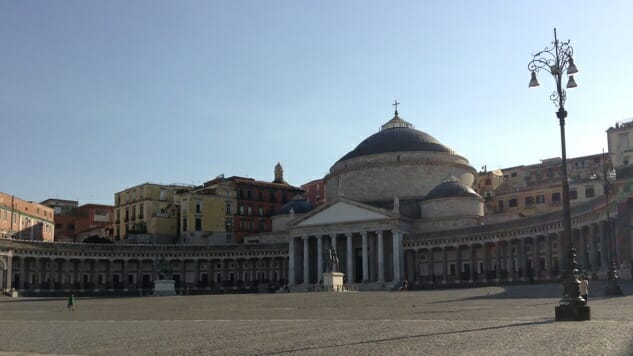Italy’s Coronavirus Crisis is a Vision of America’s Future
Photo of Naples by Annie Merkley
Tick tock. Tick tock. Goes the global quarantine clock. At the heart of the watch, all eyes are on Italy to see how long the pandemic will take to run its course. When COVID-19 first reared its ugly head, there were hopes it would pass quickly, quietly. However, Italian hospitals are overwhelmed and even turning patients away, the death toll surging past 3,000, surpassing that of China. It is now glaringly clear that we are on the first leg of an infectious marathon.
Countries around the world are racing to close their borders, shutting down schools, large sports and music events. Bars and restaurants are empty, and there have been initiations of police or military enforced quarantines. A virus that caused concern in China back in January of this year has spread its virulent wings and created a world-wide pandemic unlike anything we have seen in over 100 years.
In Italy, questions abound, and no concrete answers are to be found. A mandatory nationwide quarantine that was initially decreed to be from March 12th-31st has now been extended. The finish line for when the COVID-19 killing spree will be a thing of the past seems to keep getting pushed back and back.
What will happen after the fact? Will students be able to graduate? Will tourism return to Italy in 2020, a country where 13 percent of its GDP is reliant on foreigners coming in to enjoy historic sights, scrumptious food and wine, beautiful beaches and stunning ski slopes? When will this boot-shaped Mediterranean country be able to kick the coronavirus out and look toward the future again?
And when will we, wherever we may be, follow in the footsteps of Italy…struggle through whatever the outbreak may bring and be able to give a collective sigh of relief?
On March 10, I spoke with a dear friend of mine, Leanne Stam, in Brunico—a charming town in the South Tyrol region of Northern Italy nestled in Alpine mountains with world-class skiing along the Austrian border. I was joking with her, thinking that the Italian government was perhaps overreacting. She quickly corrected me and said they were enacting necessary preventative precautions and that the shit was hitting the fan. She advised me to not panic, but to get prepared, “It’s heading your way.” And indeed it has.
Stam, who teaches in the public school system in South Tyrol, and is a mother of a 12 year old son, said that as of March 18th school is officially closed until the 5th of April. However, she said that she just received an email that school will most likely be conducted online until mid-June, in the hope that students can physically return to classes at the beginning of the new school year in September. The graduating class of 2020 will still have a graduation in some capacity, they’re just not sure how that is going to look yet.
Stam is luckily earning the same teaching from home as if she were physically at school. She has started using Google Meet to hold classes virtually, and she is uploading texts and homework for the students to do at home and turn in online. Her classes consist of 10-25 students, and she’s found that this online platform works well. It just takes some getting used to. She said her son has adjusted to his online education with great ease.
“You have to have a computer at home to be able to continue your education, if you don’t and you don’t have any internet you’re totally screwed,” Stam said.
According to Stam, the quarantine has been “quite peaceful” in the small town of Brunico. No one is getting black eyes brawling over toilet paper or hording goods apocalyptic-style. “Just the fresh produce, there is less of that, but other than that the supermarkets are, you know, normal.”
“The police force is out, you have to carry a piece of paper that says, ‘I myself am healthy and I’m going to get groceries,’ and if they catch me, I don’t know, just like trying to go to a friend’s house or somewhere that I don’t need, I get a 250 euro fine,” Stam stated, “Playgrounds are closed, any open space, any park, you can walk through but you can’t stop.”
-

-

-

-

-

-

-

-

-

-

-

-

-

-

-

-

-

-

-

-

-

-

-

-

-

-

-

-

-

-

-

-

-

-

-

-

-

-

-

-








































